- Home
- Tracy Cooper-Posey
War Duke of Britain Page 4
War Duke of Britain Read online
Page 4
Nimue turned to stand beside her. She was aware of what others said about her and Vivian—the white and the black, the light and the dark. Only, Vivian had a glow of her own, now.
“It is sunset. Now I understand,” Nimue said. Her voice was tired. She was tired—of more than just this day’s heart-draining events.
Vivian nodded.
“Now I am here and can reflect, I agree. Human detritus of that kind does not deserve to live. Not when so many good people have—” She couldn’t finish the sentence. Instead, she slid her hand into Vivian’s. For a moment, Vivian didn’t move. Then her fingers closed around Nimue’s.
It was the slightest of reactions, yet Nimue trembled. “We should leave at first light,” she said. “The boys need to be away from this place as soon as possible—”
Vivian turned and kissed her.
Nimue sighed and drew her closer.
Galleva, later that year.
ANWEN HELD THE LETTER OUT to Ector, to let him take it back. He plucked the edge of it with his fingers, as if he didn’t want the bad news to brush against his skin. The letter rolled up as Anwen let it go.
Ector put the scroll back on the table where it had been sitting when Anwen and Steffan had arrived to read it to him. Ector sucked at his teeth with a soft hissing sound, barely heard over the flames from the firepit in the middle of the room.
“So…” he breathed.
Steffan shifted, his hand sliding down his staff to rest between his knees. The other joined it. “I would guess no one has been told the true nature of Uther’s injury. If they thought their King could not sire another child, it would sow doubt just when Uther needs their confidence the most.”
Ector looked troubled. “He cannot maintain this lie for long. Eventually, they will learn he is impotent. Then what? The Saxons will see it as a sign of weakness and swarm all over this country like ants on a hill. You think this summer was bad? Wait until next summer.”
“Next summer will be bad no matter what transpires this winter,” Anwen said sharply. “Uther is wise to keep this to himself. We have all read the reports Uther’s spies give him—the Saxons have had years of drought and famine and lean harvests. They are desperate and after ten years of heavy war, they have yet to learn Uther is not the weak substitute they presumed him to be in the beginning. They still think they can win—”
“They have to believe that, don’t they?” Steffan murmured. “It is their children with empty bellies. A man will do much to redress that wrong.”
“Not at the expense of our children,” Anwen said, her tone flat. “Nor our farms, or our family homes. This is our land, not theirs.”
Neither of the men responded. They had both learned what that flat tone of Anwen’s meant. Neither would attempt to argue against it.
“So, Merlin was right, after all,” Steffan said, instead. “Uther must acknowledge the boy as his heir.”
“Did you doubt Merlin?” Anwen asked him.
Ector snorted. “I did. All along. To presume a man like Uther would fail to produce another male child in all these long years is so unlikely that…”
“That Uther himself bet against it,” Anwen finished, her tone still crisp.
“Where are they, anyway?” Ector said, stirring uncomfortably.
“All three are fishing on the lake with Myrddin.” Steffan shrugged. “They worked hard this morning.”
“They’ll have to work harder now, won’t they?” Ector said gruffly. “Damn it all…” he added under his breath.
“Emrys, at least…” Anwen whispered.
Steffan shook his head. “No. All of them. Remember what we agreed? We treat them identically, so none of them ever suspects…” He sighed. “Well, they will learn the truth eventually, but they’re young still. Let them have their childhood, for as long as Uther will leave the boy here with us.”
“If the Saxons have their way, that won’t be long at all,” Ector said darkly.
“All that stands between our children and ruin is one besieged King…” Anwen breathed.
No one disputed her this time, either.
TEN YEARS LATER
Chapter Three
Galleva, north of the Romans’ wall. 485 C.E.
The day her life changed forever began simply enough. Rhiannon begged a handful of breakfast rolls from the cook, who was yawning as she put together breakfast for the household. Rhiannon kissed Maeve on the cheek, threw on her cloak, threaded her bow over her shoulder and picked up the staff she carried with her everywhere.
She stole out of the still-slumbering house, across the courtyard and out through the gates. Emrys and Cai had gone ahead and thoughtfully left one side of the gate open for her. They were heavy to move by herself.
She let the gate swing shut behind her. It would no longer be barred. Emrys and Cai wouldn’t have left it open if they thought there was any danger of marauders stealing through it, though. They both had exceptional instincts for trouble. Their wariness came from years of stealing away from the house to have adventures of their own in the forest.
It had been one such adventure, when they were all five years old, when they met Myrddin, who had become a firm fixture in their lives. It was likely Emrys and Cai were heading for Myrddin’s little house in the forest, beside the holy shrine he cared for.
Rhiannon bent to check their tracks. Yes, they were heading in that direction. They hadn’t bothered to disguise their steps this morning, although they sometimes did just to see if she could find them once more. She always did.
The rolls she begged from Maeve would be cold by the time she reached the little cottage but it didn’t matter. Myrddin made the best oatcakes in the world and they were just as good for breakfast as the highly spiced rolls Maeve made. The rolls could be warmed, later, as a mid-morning meal. They would tide them over until after the noon break, when it was safe to return to the house once more. The danger of being assigned work for the afternoon would have passed.
The old Roman villa had once been a general’s country abode. The last vestiges of elegance and indolence in the house had been obliterated by a century of harsh farm life. Stables and lean-tos were attached to the outer walls. The shady verandahs protected and stored hay and bags of grain for planting next season. Meat hung, drying, in the high ceilings of nearly every room—especially those rooms with fire pits in the middle.
The old frescoes on the walls were faded and the mosaic patterns of the tiles ruined by broken tiles and missing pieces, whose spaces were filled by hardened mud.
Count Ector considered himself Roman to the core, while Druscilla, his wife, could count her Roman ancestors on both hands and recite their lineage when asked. The vestiges of a Roman way of life were a result of her influence, not Ector’s. The house had belonged to her ancestors and was part of her dowry. Ector turned the run-down building into a working farm which kept all of them fed and sheltered when many in Britain could count on neither food nor warmth.
Rhiannon learned this from observation, discussion with Emrys and Cai, and in formal debate with Myrddin. Myrddin’s classical teaching was far harsher and disciplined than any lessons Rhiannon’s mother and father dispensed, even though they were the formal teachers in their lives.
Not that anyone had time for lessons anymore. While Steffan and Anwen remained in the house with Ector as privileged residents, they ceased formal lessons more than a year ago. Now, Steffan was employed as Ector’s secretary and advisor, while Anwen provided the scribing and reading, as needed. There was little of that, for Ector was not a great letter writer and the news from elsewhere in the world was grim.
Which was just as well, for Rhiannon’s mother’s eyes had grown weaker of late. She could only read script which was large and well-formed, or in good light. More often than not, Rhiannon or Emrys or Cai would provide that service for Ector, while everyone pretended Anwen could have read the script but chose not to.
There were other disturbing signs of age in her mother and f
ather which had bothered Rhiannon of late. Her father’s once pitch-black hair, which Rhiannon inherited—to her mother’s eternal gratitude—was now thick with white and silver, especially at the temples.
Her mother’s skin around her soft brown eyes and her chin and throat was soft and loose. She would sometimes lose track of what she was saying and have to start again, too. She preferred to linger by the fire even on days when the temperature was milder than it was today. She read when she could or would stare into the flames. Steffan often sat by her side and let her read to him.
Even Ector’s once rich brown hair was now nearly white. Like her parents, Ector had come to fatherhood late in life and now he was content to live the life of a gentleman farmer. It had been many years since he answered the High King’s call for men and arms. Not in Rhiannon’s memory, at least. Sometimes, during the winter, when it was safer to travel than high summer, Ector would journey to the south to meet with former army companions. He returned from those long visits looking grumpy and grave and would huddle in his library with her mother and father and talk long into the night.
It seemed to Rhiannon that news from beyond the borders of Galleva was always grim and had grown darker of late. It was why sneaking off into the forest just after dawn was a foolish thing to do, especially on her own. The open roads were so chancy now she was more likely to meet someone who would kill them for their warm cloaks than not.
Mostly, the three of them flitted between the trees and stayed off the roads. They knew every tree and blade of grass for a good five miles beyond Myrddin’s shrine, which gave them an advantage, for people always got lost in the Forest Sauvage.
Because she was hungry and wanted to eat, Rhiannon risked using the faster route along the road which ran through the outer corner of the forest where it jutted down from the north, to almost encircle Galleva. A mile along the road, she could take the woodcutters’ tracks to cut across to the main road north where Myrddin’s shrine lay.
Half a mile inside the trees, Rhiannon slowed her steps. The skin on the back of her neck prickled hard.
She was being followed. She was certain of it. There had been no sound. They were good hunters, whoever they were, which raised the risk. It was the absence of sound which alerted her. The forest was too quiet. Even at this time of year, before the snow fully melted and the green appeared, birds and animals called and scurried.
None of those creatures made a sound now. They were holding themselves still and silent until the intruders moved on. The only sound was the soft whisper of bare branches overhead.
Rhiannon gripped her staff and loosened her knife, weighing her options. She would not lead whoever it was to the shrine. They might come across the shrine by themselves, if they turned north along the main road, which this track met up with. They might pay their respects to the shrine and its keeper with a coin or food.
However, if she led them there through the trees, they would examine the odd man who kept the shrine more closely than they should. They would learn he was far from being a humble hermit, which would put Myrddin at risk.
Only she could not stand in the middle of this road forever, either. If she turned and headed back to the farm, she would risk confronting whoever was following her…or leading them back to the farm, which was also not an option.
Rhiannon made herself walk again. At least she would appear to be going somewhere while she thought.
She passed the woodcutters’ track where she normally turned off, and kept going, her heart thudding unhappily.
Then she heard the softest whisper. A footfall muffled by damp soil.
Then another, much closer.
Rhiannon whirled, bringing the staff up and sliding her left hand down to grip the middle of it. To the ignorant, the staff appeared to be a walking aide.
The man was huge and far too close. Rhiannon took three flying steps toward him, her heart pounding. She rammed the end of the staff into his chest, just below the ribs, in the place which could stop a grown man from breathing for a while.
He coughed and bent over, his blond hair flipping forward. Saxons had blond hair, only he was not Saxon, she would bet her life upon it. He was too well dressed, with a hint of the Roman about him. An elegant pin held his cloak at his shoulder. The cloak was edged with gold embroidery. His boots were whole and warm.
“Who are you and why are you following me?” Rhiannon demanded.
He groaned, sinking to the ground. He propped himself up with one gauntlet covered hand.
The forest erupted with people, too many for Rhiannon to track. She spun again, pulling out her short sword and gripping the staff under her left arm. One handed, the staff was next to useless, but it could be swung and if it landed heavily enough against the side of a knee or temple, it could drop a grown man. She needed a sharp blade now.
A man wearing leather armor ran toward her. Before he was within reach of her sword, Cai leapt out of the trees with a roar, his sword raised. He fell upon the man, reversing his sword for the blow behind the ear which would lay the man flat and still.
“Behind you!” Emrys cried and Rhiannon spun again.
Leaping over the man she had disabled came another, his leather as slashed and worn as the one Cai had just laid flat. He wore a dirty white cloak furled over his shoulders and his chin was dark with growth. He snarled at her.
Rhiannon relaxed as he stepped closer.
At the very last second, he sensed Emrys coming at him and tried to dodge out of the way. It was too late. Emrys brought him to the ground and knocked him cold. Almost instantly, Emrys was on his feet once more, his sword held out toward the trees in silent warning. “Don’t bother,” he called to the silent watchers, his voice rough. “We can keep this up all day.”
The silence held for only a second more.
“Everyone put up your swords. Now!” The voice rolled across the road and into the trees beyond, reaching everyone who stood on the path and those who still hid in the trees. There was a commanding note in the voice—Myrddin was a trained singer, and he used that volume and control to full effect now.
The man Rhiannon had disabled—the lord, she guessed—lifted his head at Myrddin’s sharp command. He looked around, his hand to his belly, still trying to breathe.
Rhiannon put her sword away and gripped her staff once more. It was better for close quarters work.
Emrys and Cai didn’t move a muscle. They held their swords at the ready, their backs to her, watching either approach and their flanks, too.
Myrddin stepped out onto the road twenty paces from the nearest man. He carried his own staff which Rhiannon had taught him to use. The staff in Myrddin’s hands looked natural. He appeared to be a wild, half-crazy hermit. His hair was almost as long as Rhiannon’s, but wild and springy. The Celtic black was shot with a few strands of gray. She was sure he only combed it when she begged him to do something with it. Otherwise, the tangled mess hung around his shoulders in wild abandon. His beard was just as long and scruffy, climbing up his cheeks and hiding all but his high cheekbones. His eyes were as black as his beard and hair, giving him a dark, foreboding appearance, until one noticed how often amusement sparkled in them.
He was a thin man, who wore the same ragged robe and patched hide boots year in and year out. She had never seen him in anything different. She had patched rents and holes in the garment while he was wearing it, for he possessed no other.
Yet Myrddin’s teeth were whole and complete and white. When he smiled, which he only seemed to do when the three of them were alone with him, the smile transformed him.
Cai and Emrys and she had speculated for years, trying to guess how old Myrddin was and where he came from. There were clues they could discern from his stories and his manners which conflicted with each other, leaving them even more confused.
He was an educated man. He knew most of the common languages and some of the rare ones, too. He understood advanced mathematics and engineering and was also a singer and harp player
. He seemed to have traveled the world, too. There were few places he had not visited.
He was also a superior healer and surgeon. Once, when Drusilla had been so ill the local surgeon told Ector to brace himself for the worst, Emrys had smuggled Myrddin into the house to treat her. Druscilla had recovered, although Ector had been furious about Emrys’ high-handed ways with a holy man.
In most light but broad, high summer daylight, Myrddin looked crazy and often sounded feeble-minded. Therefore, when he shuffled up beside Emrys and touched his sword arm to encourage him to drop the sword, Rhiannon was shocked to see the lord leap to his feet and stare at Myrddin, his eyes widening. His gaze shifted from Myrddin to Emrys and back.
“Hello, Cador,” Myrddin said. “I see you’ve met my friends. The lady is Rhiannon. The small mountain there is Cai, and this is Emrys. Emrys, lower your sword. This man is known to me.”
Emrys dropped his sword with reluctance. “He attacked Rhiannon.” His voice dropped into the deep octaves. When he spoke that way, Rhiannon knew he was emotionally moved and hiding it.
He was angry because of the threat to her.
“I would argue against the accusation,” the lord, Cador, replied. “I merely approached her. She attacked me.”
“Any stranger approaching too closely is a threat, these days,” Rhiannon told him.
The lord bowed his head. “I stand corrected.” He brushed the dirt from his sleeves and straightened his cloak. “I was looking for directions,” he confessed. “We got lost in this damn place.”
“Where are you heading?” Myrddin asked.
“Galleva. I seek Count Ector.”
“Then you have found him—near enough,” Myrddin said. “Cai is Ector’s son.”
Emrys pushed his sword into the scabbard with a hiss of metal against the molded leather. “And I am Cai’s protector, I warn you…”
“As am I,” Rhiannon added. She hefted the staff, to remind Cador what she had done to him with it.

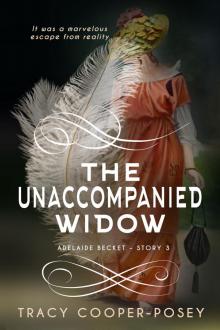 The Unaccompanied Widow
The Unaccompanied Widow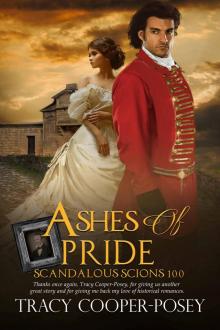 Ashes of Pride
Ashes of Pride Inside Man
Inside Man Kiss Across Seas
Kiss Across Seas Kiss Across Chaos
Kiss Across Chaos But Now I See
But Now I See Scandalous Scions Two
Scandalous Scions Two Her Rebellious Prince (Scandalous Family--The Victorians Book 2)
Her Rebellious Prince (Scandalous Family--The Victorians Book 2)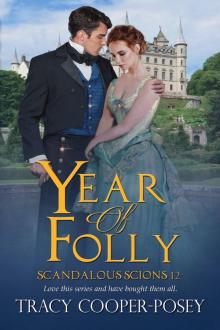 Year of Folly
Year of Folly Suns Eclipsed
Suns Eclipsed Quiver and Crave
Quiver and Crave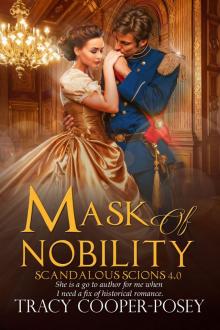 Mask of Nobility
Mask of Nobility The Second Trinity
The Second Trinity Kiss Across Tomorrow (Kiss Across Time Book 8)
Kiss Across Tomorrow (Kiss Across Time Book 8) Lost At Sea
Lost At Sea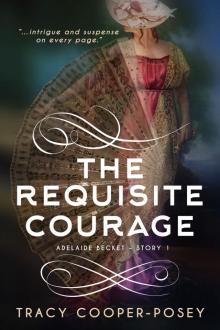 The Requisite Courage
The Requisite Courage Evangeliya
Evangeliya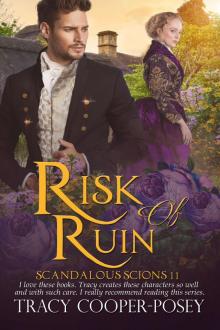 Risk of Ruin
Risk of Ruin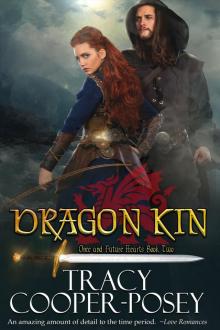 Dragon Kin
Dragon Kin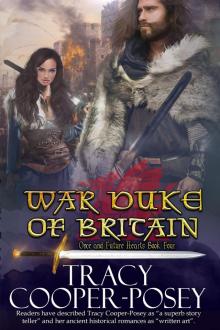 War Duke of Britain
War Duke of Britain Scandalous Scions One
Scandalous Scions One Degree of Solitude
Degree of Solitude Kiss Across Worlds (Kiss Across Time Book 7)
Kiss Across Worlds (Kiss Across Time Book 7)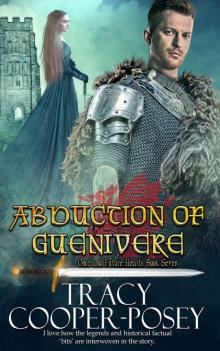 Abduction of Guenivere (Once and Future Hearts Book 7)
Abduction of Guenivere (Once and Future Hearts Book 7) Junkyard Heroes
Junkyard Heroes Flying Blind
Flying Blind Amor Meus
Amor Meus Heart Strike (Project Kobra Book 3)
Heart Strike (Project Kobra Book 3)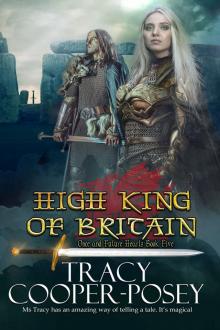 High King of Britain
High King of Britain Arctic Ambush
Arctic Ambush Romani Armada (Beloved Bloody Time)
Romani Armada (Beloved Bloody Time)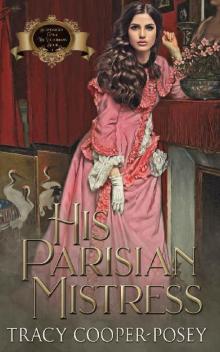 His Parisian Mistress (Scandalous Family--The Victorians Book 1)
His Parisian Mistress (Scandalous Family--The Victorians Book 1)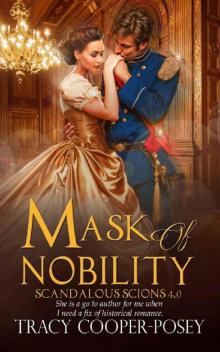 Mask of Nobility (Scandalous Scions Book 4)
Mask of Nobility (Scandalous Scions Book 4)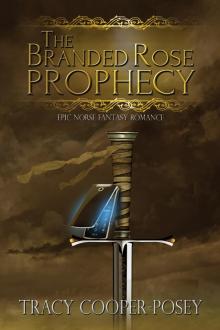 The Branded Rose Prophecy
The Branded Rose Prophecy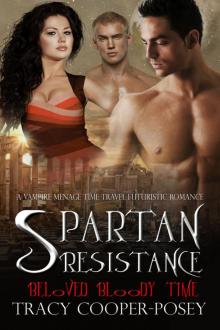 Spartan Resistance
Spartan Resistance Byzantine Heartbreak (Beloved Bloody Time)
Byzantine Heartbreak (Beloved Bloody Time)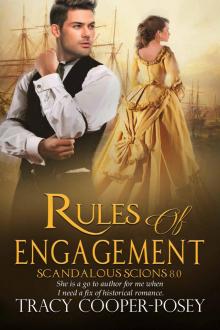 Rules of Engagement
Rules of Engagement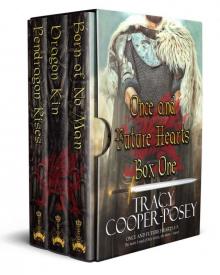 Once and Future Hearts Box One
Once and Future Hearts Box One Soul of Sin (Scandalous Scions Book 2)
Soul of Sin (Scandalous Scions Book 2)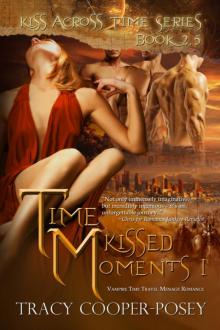 Time Kissed Moments 1
Time Kissed Moments 1 Blood Revealed
Blood Revealed Cat and Company
Cat and Company Byzantine Heartbreak
Byzantine Heartbreak Casualties of War
Casualties of War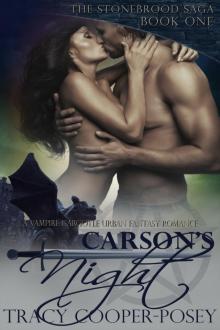 Carson's Night
Carson's Night Pendragon Rises
Pendragon Rises Terror Stash
Terror Stash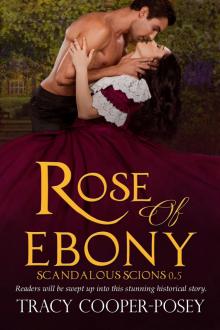 Rose of Ebony
Rose of Ebony Zoe's Blockade (Destiny's Trinities Book 5)
Zoe's Blockade (Destiny's Trinities Book 5) Blood Ascendant (Blood Stone Book 5)
Blood Ascendant (Blood Stone Book 5)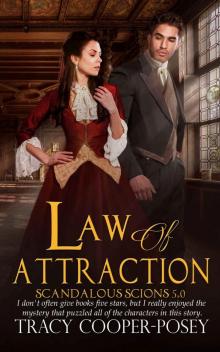 Law of Attraction
Law of Attraction Varken Rise
Varken Rise Blood Unleashed (Blood Stone)
Blood Unleashed (Blood Stone) Prisoner of War
Prisoner of War Vistaria Has Fallen
Vistaria Has Fallen Kiss Across Deserts
Kiss Across Deserts Terra's Victory (Destiny's Trinities Book 7)
Terra's Victory (Destiny's Trinities Book 7)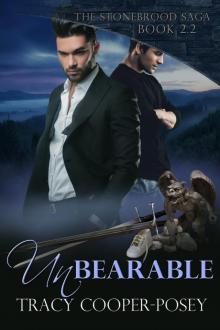 Unbearable
Unbearable Faring Soul - Science Fiction Romance
Faring Soul - Science Fiction Romance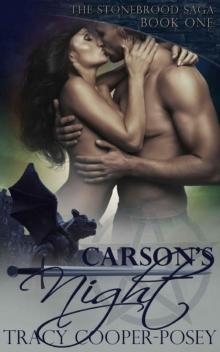 Carson's Night (The Stonebrood Saga)
Carson's Night (The Stonebrood Saga) Mia's Return
Mia's Return Kiss Across Swords (Kiss Across Time Series)
Kiss Across Swords (Kiss Across Time Series)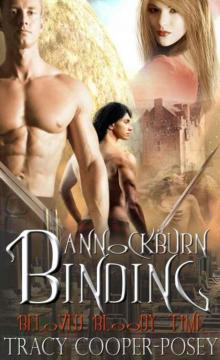 Bannockburn Binding (Beloved Bloody Time)
Bannockburn Binding (Beloved Bloody Time) Beauty's Beasts
Beauty's Beasts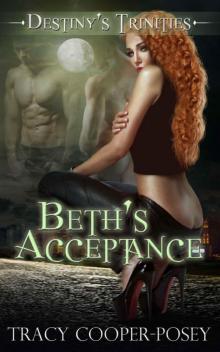 Beth's Acceptance
Beth's Acceptance Kiss Across Kingdoms
Kiss Across Kingdoms Promissory Note
Promissory Note Blue Knight
Blue Knight Blood Stone
Blood Stone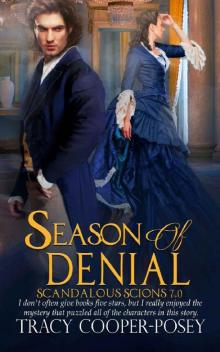 Season of Denial (Scandalous Scions Book 7)
Season of Denial (Scandalous Scions Book 7) Kiss Across Chains (Kiss Across Time Series)
Kiss Across Chains (Kiss Across Time Series) Yesterday's Legacy
Yesterday's Legacy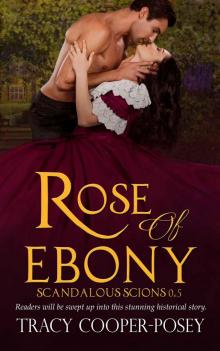 Rose of Ebony (Scandalous Scions Book 1)
Rose of Ebony (Scandalous Scions Book 1) Valor of Love (Scandalous Scions Book 2)
Valor of Love (Scandalous Scions Book 2) Hostage Crisis
Hostage Crisis Fatal Wild Child
Fatal Wild Child Octavia's War
Octavia's War Beth's Acceptance (Destiny's Trinities)
Beth's Acceptance (Destiny's Trinities) 5,001 - A Science Fiction Romance Short Story
5,001 - A Science Fiction Romance Short Story Freedom Fighters
Freedom Fighters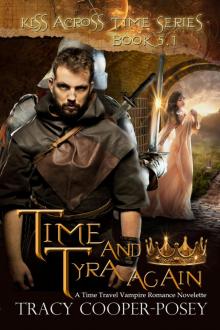 Time and Tyra Again
Time and Tyra Again Harvest of Holidays
Harvest of Holidays Kiss Across Chains
Kiss Across Chains Sabrina's Clan
Sabrina's Clan Red Leopard (The Vistaria Affair Series)
Red Leopard (The Vistaria Affair Series)